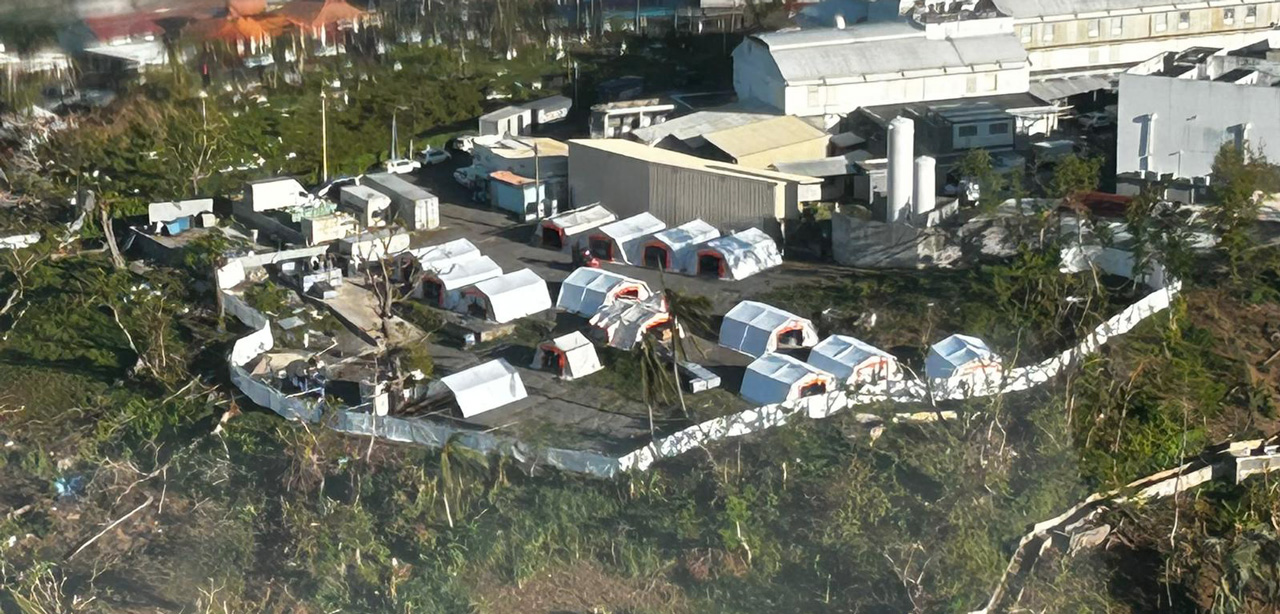BACKGROUND: Cumulative environmental exposures and social deprivation increase health vulnerability and limit the capacity of populations to adapt to climate change. OBJECTIVE: Our study aimed at providing a fine-scale characterization of exposure to heat, air pollution, and lack of vegetation in continental France between 2000 and 2018, describing spatiotemporal trends and environmental hotspots (i.e., areas that cumulate the highest levels of overexposure), and exploring any associations with social deprivation. METHODS: The European (EDI) and French (FDep) social deprivation indices, the normalized difference vegetation index, daily ambient temperatures, particulate matter (PM(2.5) and PM(10)), nitrogen dioxide, and ozone (O(3)) concentrations were estimated for 48,185 French census districts. Reference values were chosen to characterize (over-)exposure. Hotspots were defined as the areas cumulating the highest overexposure to temperature, air pollution, and lack of vegetation. Associations between heat overexposure or hotspots and social deprivation were assessed using logistic regressions. RESULTS: Overexposure to heat was higher in 2015-2018 compared with 2000-2014. Exposure to all air pollutants except for O(3) decreased during the study period. In 2018, more than 79% of the urban census districts exceeded the 2021 WHO air quality guidelines. The evolution of vegetation density between 2000 and 2018 was heterogeneous across continental France. In urban areas, the most deprived census districts were at a higher risk of being hotspots (odds ratio (OR): 10.86, 95% CI: 9.87-11.98 using EDI and OR: 1.07, 95% CI: 1.04-1.11 using FDep). IMPACT STATEMENT: We studied cumulative environmental exposures and social deprivation in French census districts. The 2015-2018 period showed the highest overexposure to heat between 2000 and 2018. In 2018, the air quality did not meet the 2021 WHO guidelines in most census districts and 8.6 million people lived in environmental hotspots. Highly socially deprived urban areas had a higher risk of being in a hotspot. This study proposes for the first time, a methodology to identify hotspots of exposure to heat, air pollution, and lack of vegetation and their associations with social deprivation at a national level.
Auteur : Adélaïde Lucie, Hough Ian, Seyve Emie, Kloog Itai, Fifre Grégory, Launoy Guy, Launay Ludivine, Pascal Mathilde, Lepeule Johanna
Journal of exposure science & environmental epidemiology, 2024, p. Online ahead of print


